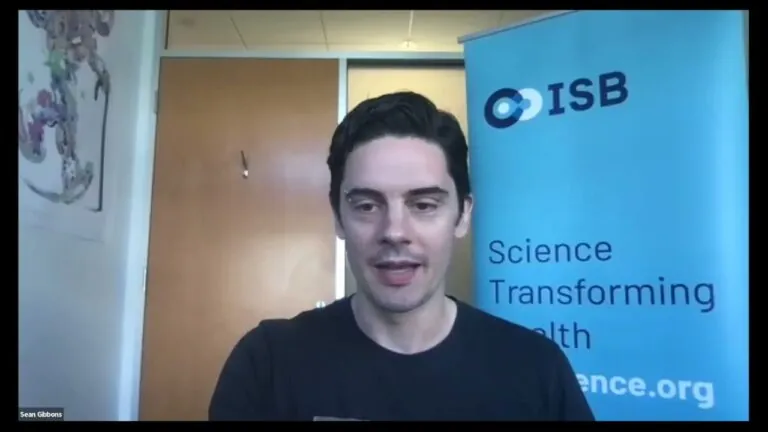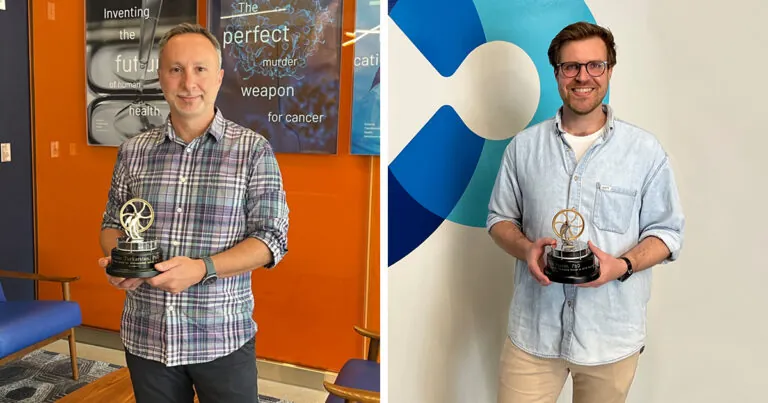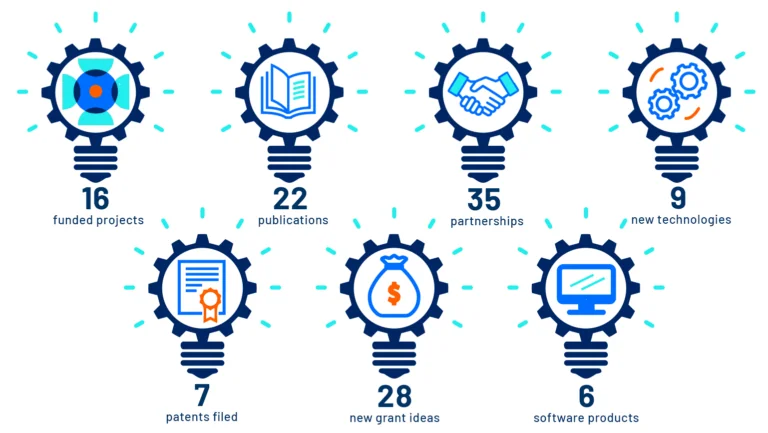
Melanoma Starts Evading Treatment Within Hours – Here’s How to Stop It
ISB researchers have uncovered a stealth survival strategy that melanoma cells use to evade targeted therapy, offering a promising new approach to improving treatment outcomes.

ISB researchers have uncovered a stealth survival strategy that melanoma cells use to evade targeted therapy, offering a promising new approach to improving treatment outcomes.

ISB’s Gibbons Lab developed a breakthrough method that analyzes food-derived DNA in fecal metagenomes, allowing for data-driven diet tracking without the need for burdensome questionnaires.

ISB Assistant Professor Dr. Sean Gibbons talked about the science behind statins in our most recent Research Roundtable virtual presentation. His talk was titled “Bugs vs. Drugs: How Our Unique Gut Microbiomes Shape Our Personalized Responses to Statins.”

This year, two deserving scientists were bestowed recognition for giving back to STEM education. Dr. Serdar Turkarslan is the recipient of the JoAnn Chrisman Award for Distinguished Service to STEM Education, and Dr. Christian Diener was awarded the Dr. Christine Schaeffer Award for Exemplary Service to STEM Education.

The fifth cycle of ISB’s Innovator Award Program officially wrapped up this week with the principal investigators of the 2021-22 projects delivering their final presentations. In April, three 2022-23 Innovator Award collaborative projects were announced. The Innovator Award Program was launched in 2017, and has been tremendously successful.

Christopher Lausted and Dr. Danielle Vermaak were featured guests of an ISB Research Roundtable presentation. The husband-and-wife team detailed the planning and rollout of a DNA sequencing curriculum project that was tested in Vermaak’s Lincoln High School science classroom in Seattle.

In this robust roundup from the 2021-22 academic year, we highlight the top projects the team worked on by month.

New ISB research shows that different patient responses to statins can be explained by the variation in the human microbiome. The findings were published in the journal Med, and suggest that microbiome monitoring could be used to help optimize personalized statin treatments.